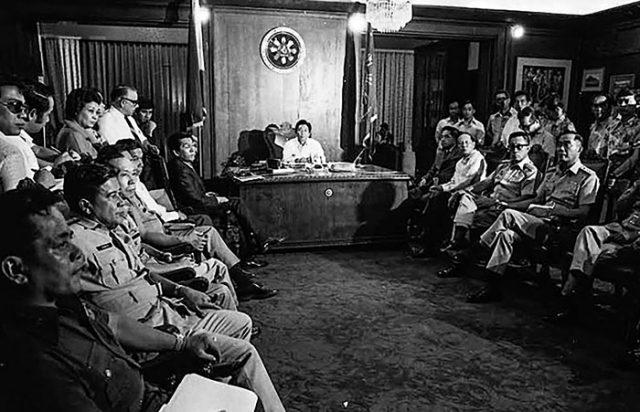
A Twitter thread has gone viral as Chief Justice Maria Lourdes Sereno is removed from her post on Friday.
The tweets by account Isko Speaks, seemingly run by a University of the Philippines student, that shares the author’s grandmother’s tearful reaction to the turn of events at the Supreme Court.
The grandmother commented that people do not seem to learn from their mistakes in the past, pointedly referring to how Sereno’s case was handled.
The posts also mentioned that the pain and the trauma felt by Martial Law victims would never disappear.
I rushed home from class to be with my lola who has been crying non stop since the news about CJ Sereno broke out.
All she ever said the past hour was “Ganito, ganitong ganito rin yung dati, hindi nagtatanda ang mga tao. Hindi talaga, hindi…” in between sobs. Nothing more.
— Isko Speaks (@iskolarspeaks) May 11, 2018
Hindi mo alam kung gaano kasakit ‘to lalo na para sa mga may mahal sa buhay na naghirap nung Martial Law. The fear and trauma paralyzes them time and time again. Tangina, harap harapan niyuyurakan lahat ng pinaglalaban natin at ang mga nailaban na ng mga nauna sa atin.
— Isko Speaks (@iskolarspeaks) May 11, 2018
My lola lost her family during Martial Law. Only she and my uncle survived. She almost lost my grandfather because he was one of the many student activists imprisoned and silenced by the Marcoses. Amongst many other things, she almost lost herself.
— Isko Speaks (@iskolarspeaks) May 11, 2018
Tuwing mag-aaway kami pag tatakas ako para magrally sinasabi niya sakin hindi natin alam kung anong klaseng mga hayop ang kinakalaban natin. Siguro nga, tama siya. Pero nakalimutan ata ng administrasyong ito kung gaano kalakas at katatag ang puso ng masa kapag ito’y nagising na.
— Isko Speaks (@iskolarspeaks) May 11, 2018
The Official Gazette reported that “around 8,000 individuals, including senators, civil libertarians, journalists, students, and labor leaders, were arrested and detained without due process upon the declaration of martial law.”
Death of Philippine democracy?
Sereno’s removal was the first time that a chief justice was ousted through a quo warranto petition, questioning whether or not her appointment by the former president was a valid one.
It was deemed a forewarning of a “constitutional crisis” where other public officials may be removed without undergoing an impeachment trial or be deprived of liberty without due process.
Senators have slammed the decision and said that it violates the 1987 Philippine Constitution.
Sen. Risa Hontiveros described it as a “black day for justice and rule of law,” adding:
“The Supreme Court has fallen, and fallen hard in the eyes of the public.”
Sen. Antonio Trillanes IV said the situation is “the darkest hour in our democracy.”
“Those SC justices who committed this heinous crime against our justice system must not and will not go unpunished.”
Gio Tingson, a spokesman for activist group Akbayan, noted that the decision meant a “heartbeat away from the death of our (the Philippines’) democracy.”
When President Ferdinand Marcos martial rule on Sept. 21, 1972, it was “the day when democracy died in the Philippines.” Marcos went on to become a dictator who ruled for two decades.
Recalling the dark times
Under Marcos’ authoritarian regime, the media was controlled by the state through cronies, businesses were similarly seized and civil liberties were curtailed.
Public officials who criticized the government were immediately arrested, alongside other opposition leaders. Some of them include former senators Benigno Aquino Jr., Jose “Pepe” Diokno, Ramon Mitra Jr. and Francisco “Soc” Rodrigo.
Marcos suspended the writ of habeas corpus, allowing law enforcers to arrest anyone without any warrant.
Congress was also shut down, transferring the powers of lawmaking to the president.









